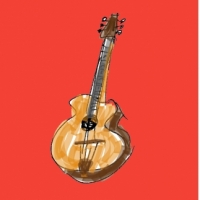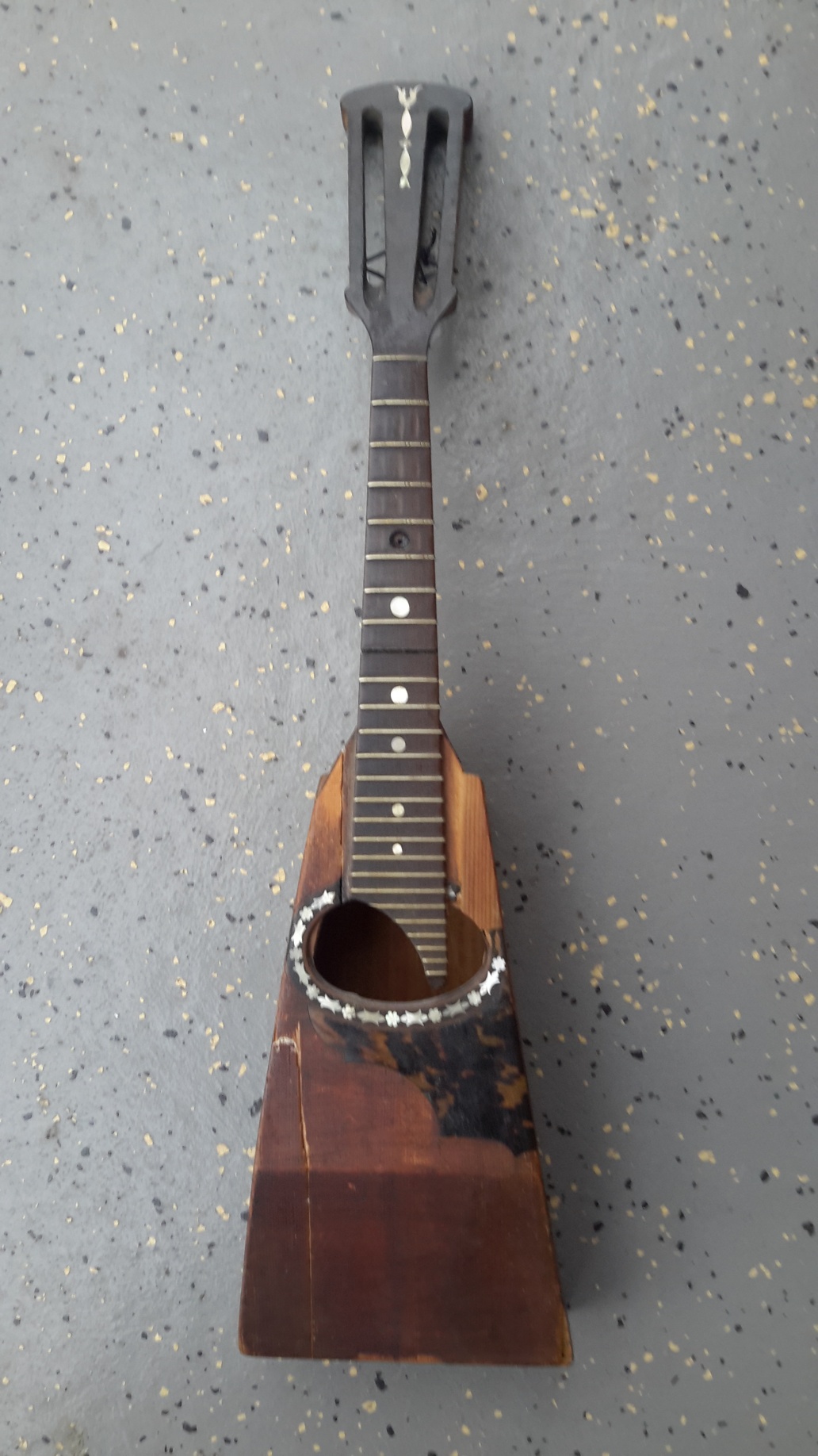DjangoBooks.com
Welcome to our Community!
Categories
- 20K All Categories
- 1.1K General
- 485 Welcome
- 60 Archtop Eddy's Corner
- 147 CD, DVD, and Concert Reviews
- 385 FAQ
- 26 Gypsy Jazz Italia
- 27 Photos
- 209 Gypsy Picking
- 21 Unaccompanied Django
- 15 Pearl Django Play-Along Vol.1
- 17 Gypsy Fire
- 45 Gypsy Rhythm
- 1.4K Gypsy Jazz University - Get Educated
- 131 Gypsy Jazz 101
- 231 Repertoire
- 229 History
- 709 Technique
- 51 Licks and Patterns
- 6 Daniel Givone Manouche Guitare Method Users Group
- 20 Eddie Lang Club
- 1.3K Gypsy Jazz Gear
- 816 Guitars, Strings, Picks, Amps, Pickups and Other Accessories
- 465 Classifieds
- 52 Recording
- 64 Other Instruments
- 18 Violin
- 5 Mandolin
- 23 Accordion
- 7 Bass
- 11 Woodwinds
- 352 Gypsy Jazz Events
- 145 North America
- 112 Europe
- 95 International
In this Discussion
Who's Online (0)
"Backpacker mandolin" finally identified: built on the remains of an Embergher #2
Almost 20 years ago I found this at the flea market, beaten to pieces, in a garbage can:
I thought it was kind of a "backpacker mandolin". Having the parts sorted, I gave them to friend of mine luthier Karsten Schnoor (fine archtops and more: http://www.karstenschnoor.com/) to glue the wooden puzzle together. He suspected it to be built maybe by a prisoner of war with lutherie knowledge during or after WWII.
Here are some more pictures of this slighty deranged instrument:
I'm looking forward to some mandolin addict in this forum saying something about instruments like this one.











Comments
It looks to me like the neck and part of the top of a broken bowlback mandolin that someone decided to "fix." If you post it on the Mandolin Cafe, they will probably figure it out.
https://www.mandolincafe.com/forum/forums/48-Looking-for-Information-About-Mandolins
Thank you very much for the link, peewee! I have not joined the forum yet, scrolling around there I found this picture of a german pocket mandolin built in the 20ies :
I agree with you on neck and top.
@peewee https://www.mandolincafe.com/forum/threads/154245-Pocket-mandolin-not-attic-but-garbage-can-found
Thanks!
@peewee: ... and thanks again!
Nice to see a happy ending.
@Willie this has all been such a great success I think it's a good time for the rest of us to dig out the hitherto nameless and friendless instruments we sourced from markets, house clearances and pawn shops over the years so they can finally be identified.
I'm happy to set the ball rolling with instrument X below - pictured next to my Portuguese mandolin to provide scale.
Front
Back
Any suggestions?
Instrument X seems to be a Gusla from Serbia, since ancient times used to accompany singers:
(picture found in the german wikipedia article about "Guslen" )
By the way, the tuning pegs of the portuguese mandolin reminds me of the "Waldzither", a german version of the cister and therefore kind of a cousin of the mandolin:
(Pictures: wikipedia)
My goodness, that was quick - I really didn't think anyone would answer.
Now I know it's name I discover that Gusle singers have even been recognised by Unesco as part of world heritage.
Many thanks Willie.
You're welcome!
The albanian name is "lahuta": lute. The romanian word "lautar" means "musician", and Gipsy clans playing music are called "lautari" (https://en.wikipedia.org/wiki/L%C4%83utari). The gusla really is a very old, archaic instrument, at least from the early middle ages. But I could even imagine Homer singing the Odyssey accompanied by some similar instrument (guslars sometimes are performing songs lasting very very long, interrupting at a dramatically significant point - and continuing the next day).
I should've known that...